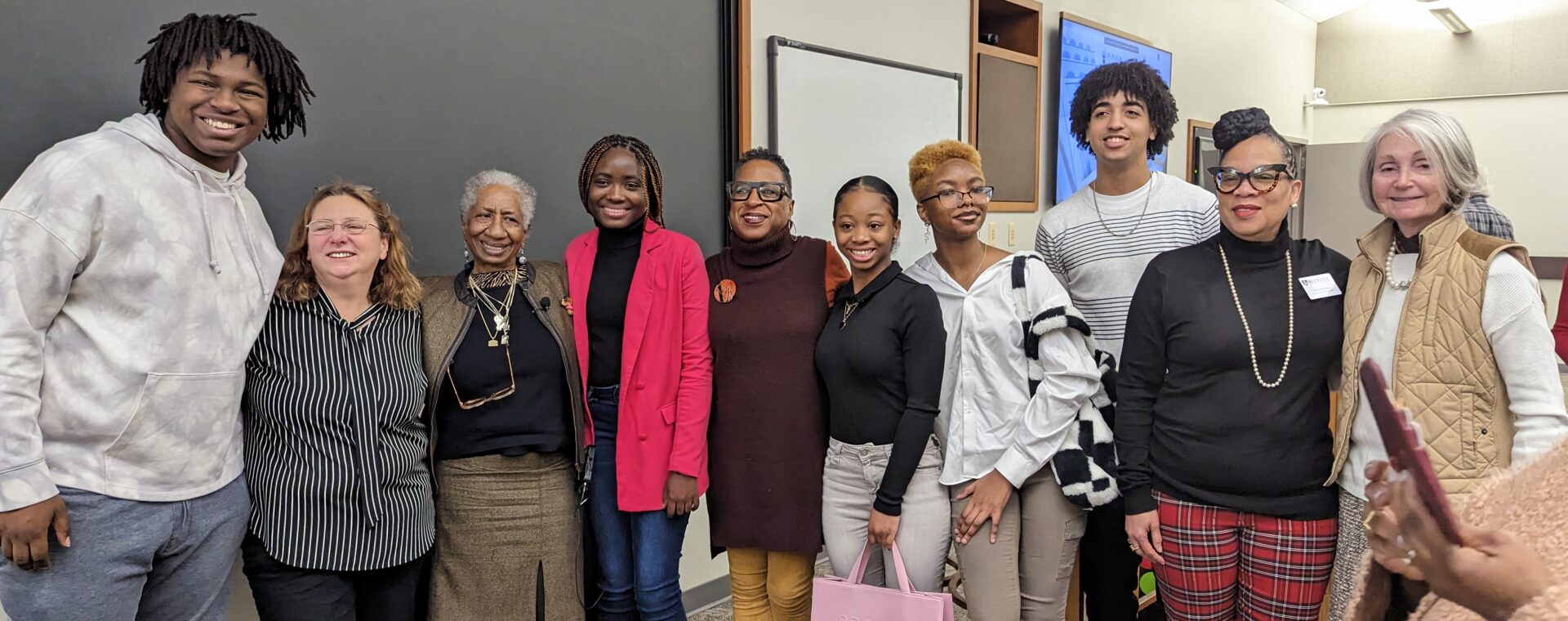Caroline Hunter’s visit to our campus today was truly remarkable and inspiring. Her courage in taking a stand against Polaroid’s involvement in the oppression of Black people in South Africa is a powerful reminder of the impact that individuals can have in effecting change.
Hunter grew up in segregated New Orleans, studied chemistry at Xavier University and was recruited by Polaroid right out of college in 1968 to be a bench chemist who worked on the gel that rolled onto Polaroid film in the company’s signature product, the instant camera.
Ken Williams a photographer for the company and later her husband, Hunter, and a few other coworkers formed a group called the Polaroid Revolutionary Workers Movement (PRWM) when they discovered that Polaroid was selling photo equipment to the South African government, which was using it to make the ID cards and passbooks used under the apartheid system. They noticed this as they passed an ad posted on a bulletin board in the hallway. The passbooks served as internal passbooks for black people, who needed them to enter cities and whites-only zones for work or official business. They started a revolution to push the company to cut ties with South Africa.
They started by posting fliers with catchy phrases like “Polaroid imprisons black people in sixty seconds,” then demanded that the company stop all operations in South Africa, publicly denounce apartheid, and donate all past profits from South Africa sales to African liberation movements.
PRWM held a large rally in 1970 with other anti-war and black liberation activists in the community including Harvard Divinity School and Science for the People calling for an international boycott of Polaroid products. They crashed lectures and talks by company executives accusing Polaroid of complicity in the systematic racism of apartheid. Hunter was fired shortly after that for activities “detrimental to the best interests of the Company.”
Hunter’s message resonated with the audience, as she emphasized the importance of finding one’s life purpose and using one’s voice to make a positive difference in the world. This valuable lesson can inspire individuals to act and become agents of change in their own communities.
Polaroid ceased all sales in South Africa in 1977, and the PRWM declared victory.
Finally, in 1986, Congress passed the Comprehensive Anti-Apartheid Act imposing sanctions on the South African economy. Pressure from the boycott, divestment, and sanctions movement helped topple the apartheid regime, which fell in the early 1990’s.
In a 2010 documentary Have you Heard from Johannesburg?, Hunter expressed simply, “As workers we had a right to say what happened to our labor.”
After Polaroid, Hunter went on to become a teacher and assistant principal at Cambridge Ridge and Latin in MA and was honored with the Rosa Parks Award by the National Education Association for leading the effort that led to sanctions against apartheid South Africa.
Hunter encouraged the over 100 people in the audience to pursue their passions and make a positive impact on the world. She is a notable example of how one person can make a difference and bring about change in the world. Her story shows that even if you face obstacles and challenges, you can still persevere and achieve your goals. By sharing her story and inspiring others, Hunter is helping to create a better future for everyone.
 Bookstore
Bookstore  Self Service
Self Service  Video Library
Video Library 
